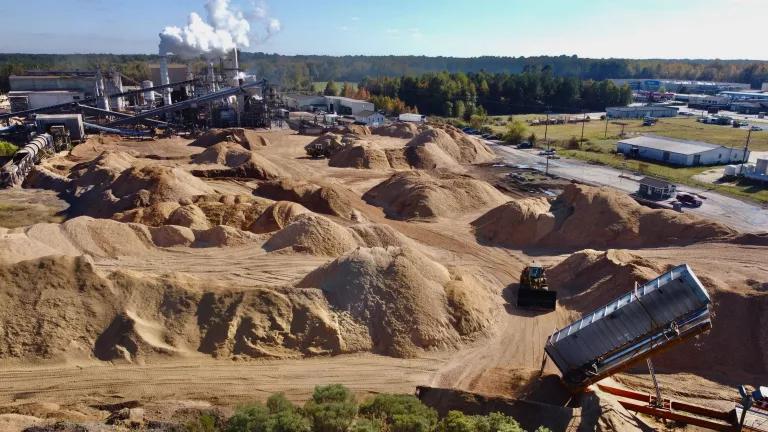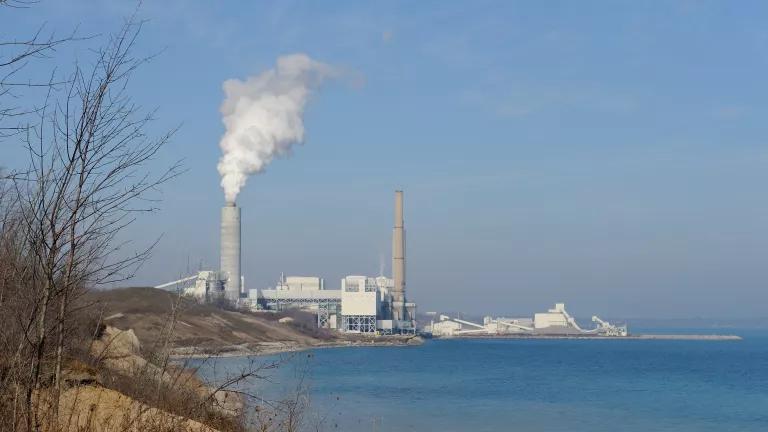Cities Fight to Keep Courts Open for Claims Against Big Oil
Federal appeals courts will soon hear important cases brought by municipal governments grappling with the mounting costs of climate change.

Federal appeals courts will soon hear important cases brought by municipal governments grappling with the mounting costs of climate change.
Fossil-fuel driven climate change continues to damage vital public infrastructure—roads, sewers, airports—and local governments must expend significant public funds to protect it. Extreme weather events compound the problem and cost additional billions. As things stand, it is the victims and taxpayers picking up the tab.
Some affected cities and counties have sued the major fossil fuel companies. They contend the companies knew their products cause significant climate-related harms, but nevertheless wrongfully promoted their unrestrained use in violation of state law. The cities and counties seek court orders for the companies to pay some of the necessary cost to protect at-risk public infrastructure.
Four different suits—led by Oakland, New York City, and Baltimore, and the county of San Mateo—are pending on appeal. (A fifth, brought by the State of Rhode Island, will likely soon follow). The cases differ. But a key issue in each is whether local governments should have the opportunity to go to court to enforce state law against the fossil fuel companies.
They should. Access to the courts is a basic principle of civil society. Access is particularly important where powerful interests are involved, as courts may provide the only realistic means of accountability.
The fossil fuel defendants and their allies want to cut off that access. Their arguments do not hold water.
State and Federal Law Can—And Should—Work Together
States and municipalities are responsible for protecting the health and welfare of their residents. To do so, states have long provided residents with legal remedies they can enforce in state court. Someone harmed you? You can take them to court.
Some of these remedies come from state legislatures in the form of statutory law. Others come from state courts in the form of common law, developed over time. Both statutory and common law comprise the state law that protects the general health and welfare.
Fossil fuel industry groups have begun arguing that states are powerless to enforce these laws against fossil fuel companies in state court. Why should these companies get to act with impunity?
The industry premise goes like this: Cities nationwide are harmed by climate change. Climate change is not only a state and local phenomenon, but national and global in scale. Thus, any lawsuit related to climate harm must be based on national—i.e. federal—law, and should be in federal court.
(That’s the bait. Here’s the switch: In federal court, industry lawyers argue that federal law doesn’t allow the municipalities’ claims. In other words, they’re arguing that no court—state or federal—should be able to hear these cases.)
Their federal-law-only premise is bogus. Bad conduct that has widespread consequences doesn’t become an exclusive federal issue just because the consequences occur in more than one state. If a company wrongfully sells a product that harms people in many different states, the company can be liable under each state’s law. Just ask opioid companies. That same company might also be liable under federal law. Just ask tobacco companies.
Federal law is exclusive in some areas. (Think national defense.) But state and federal laws generally coexist. And it is state law—statutes and common law—that traditionally provides remedies when companies harm state residents. There’s no reason companies should be able to disregard state law just because the harm they cause is related to the climate.

States and cities suing fossil fuel companies aren’t trying to remedy all nationwide climate harms or to solve the climate crisis—they are seeking to remedy local harm to their residents and infrastructure.
So Where Do These Cases Stand?
Oakland, San Mateo, Baltimore, and Rhode Island all sued in their state courts, and only for violations of state law. The fossil fuel companies used a procedure called removal to shift the cases to federal court. The municipal plaintiffs then asked the federal courts to send the cases back to state court—a step called remand.
To block remand and keep the case in federal court, the fossil fuel companies needed to convince the federal judge in each case that, despite what the state and municipalities say in their complaints, the cases could only “really” be about federal law.
The Oakland judge decided earliest and ruled for the companies, keeping the case in federal court. In essence, the judge agreed that any climate-related case must “really” be about federal law.
The other cases went the other way. Three federal judges sent the San Mateo, Baltimore, and Rhode Island cases back to state court. As the Rhode Island judge succinctly put it: “The State’s [claims] are thoroughly state-law claims.”
Appeals are next. The appellate decisions are a critical opportunity to reaffirm that states and cities may enforce their own health and welfare laws in state court. And the appellate courts can make clear that fossil fuel companies are not exempt.
Of course, states and cities will ultimately still need to prove defendants’ responsibility under state law. But that’s what the cities are seeking: their day in court, where the cities will present—and the defendants can contest—the facts.
This blog provides general information, not legal advice. If you need legal help, please consult a lawyer in your state.





